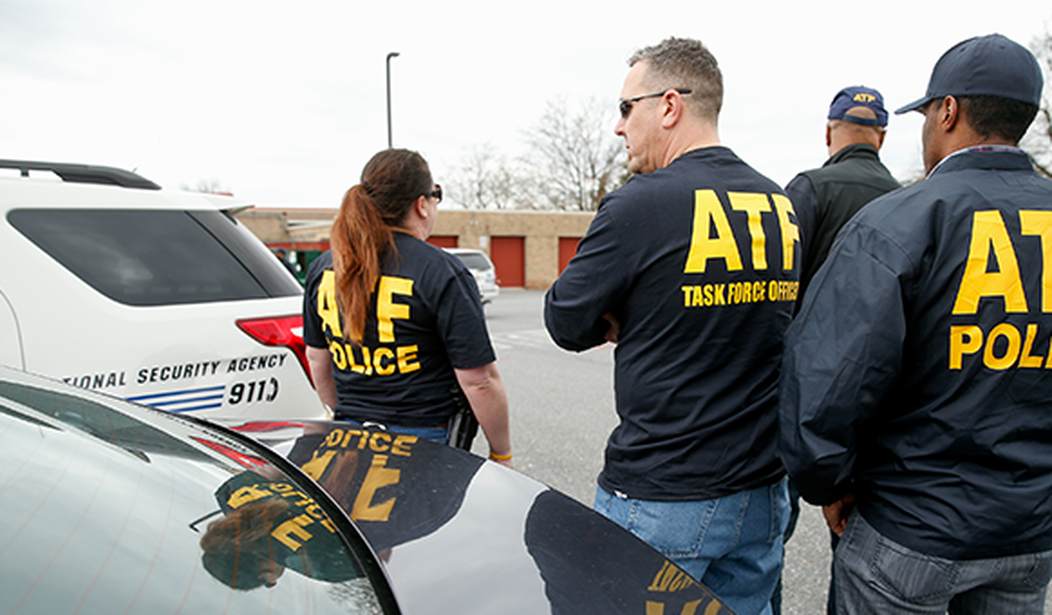The ATF's rule treating pistol stabilizing braces as attachments that turn handguns into short-barreled rifles poses an existential threat to companies like Maxim Defense Industries, even with several injunctions in place that, in theory, should allow Maxim to continue doing business as usual.
Two different federal judges in Texas have granted varying degrees of injunctive relief; one blocking the ATF from enforcing the rule against specific plaintiffs like Maxim, and the other halting enforcement of the rule against any and all pistol brace owners. But as the Minneapolis Star-Tribune reports (in a mostly even-handed story, surprisingly enough), the rule is still having a chilling effect on gun owners and manufacturers like Maxim.
Besides braced pistols in 2022 accounting for about three-fourths of Maxim's $5 million-plus in firearms sales in 2022, freestanding braces comprised about 59% of the company's $5 million-plus in nonfirearm sales, court documents said.
Maxim historically sold a significant number of braces to other firearms manufacturers who installed Maxim's product on their own guns. But with the newer ATF rule, those orders dried up in early 2023.
By August, Maxim had laid off about half its workforce. Despite injunctions suspending the ATF rule, the brace business hasn't recovered: The company's employee count stood at 18 in February, down from 38 just before the rule came out.
"There is essentially zero demand for stabilizing braces now that the product may subject ordinary consumers to regulation under the [National Firearms Act]," said Dave Dahl, Maxim's chief operating officer, in an August court filing.
Yeah, being told you run the risk of spending ten years in federal prison for a brace that you lawfully purchased does tend to give someone second thoughts about buying one. And unfortunately for companies like Maxim, not to mention millions of gun owners across the country, it could be months before SCOTUS has the opportunity to intervene and issue a decision about the pistol brace rule.
In the meantime, Maxim is branching out into other areas, hoping to make up for the revenue its lost thanks to the ATF's reversal of its long-held position that brace-equipped pistols should not automatically be considered SBRs.
While Maxim is fighting the rule, the company aims to expand its business beyond braced products. Windfeldt said Maxim is "pivoting" further into suppressors.
Aiming to reduce noise and muzzle flash, the Army and Marine Corps are looking at making suppressors standard issue for troops. Maxim has bid on a big Army suppressor contract, Windfeldt said.
"If we won that contract," he said, "that would be a game changer for the company."
Maxim istrying to make the best of a bad situation, and from a business perspective, it makes sense to go after government contracts. Suppressors are already NFA items, and I doubt the gun control lobby is going to be able to derail the military's use of those products, so investing more capital into manufacturing suppressors isn't a bad idea.
Even if companies like Maxim survive the ATF's nonsensical rule on stabilizing braces, the estimated 3-million Americans who own braces are still at risk of incarceration if the courts uphold the ATF rule. And frankly, there's no guarantee that Maxim or the other companies that produce stabilizing braces like SB Tactical will be able to hold on long enough for the Supreme Court to issue a ruling in their favor.
The Fifth Circuit has consolidated the six lawsuits challenging the pistol brace rule, and we're currently in a round of briefings before the appellate court. I don't think the Fifth Circuit is going to waste a lot of time before issuing its decision, but the wheels of justice never move as swiftly as we'd like, and there's a very real possibility that by the time SCOTUS agrees to hear these cases, one or more of the companies that primarily rely on braces as their major source of revenue will have been forced to close its doors and lay off its employees because of the chilling effect the rule has had.









Join the conversation as a VIP Member